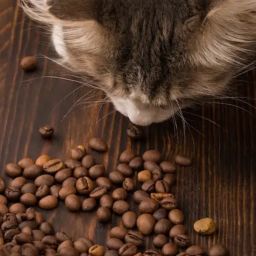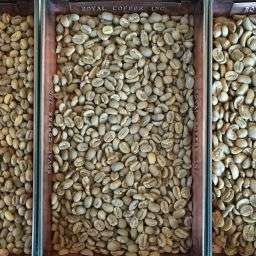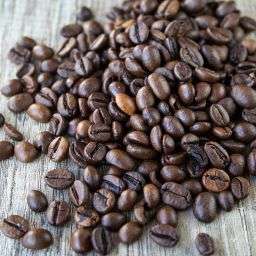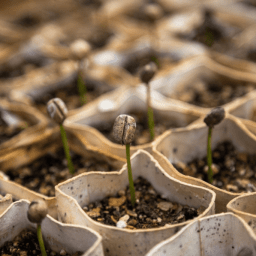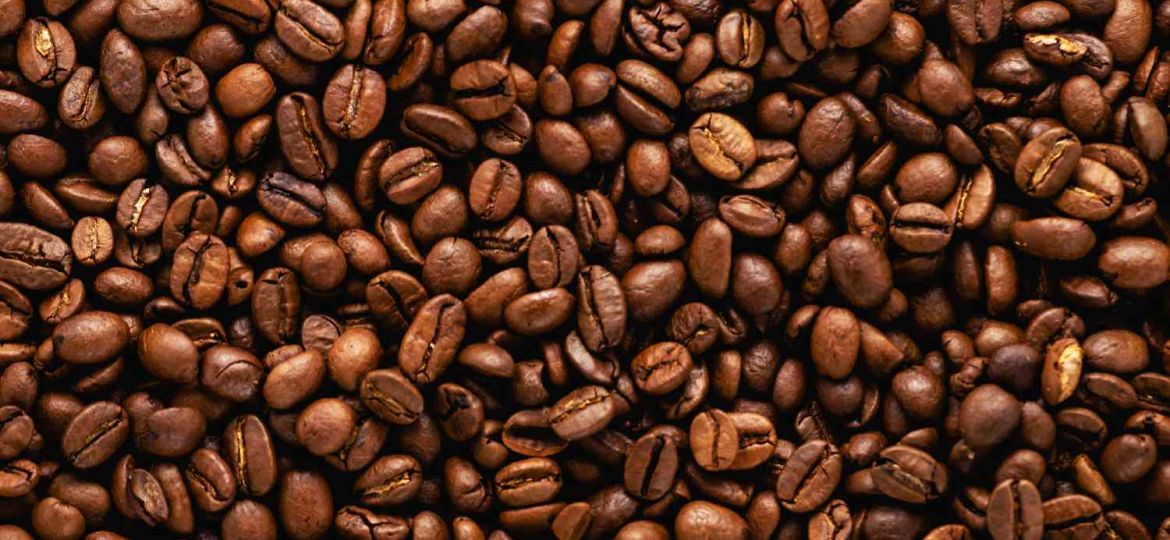
What is Bat Poop Coffee?
Bat poop coffee, despite its misleading name, is a unique coffee not actually made from bat feces. Instead, it involves a specific species of bat in Central America that interacts with coffee cherries.
These bats chew on the cherries, initiating a fermentation process with their saliva before the beans are harvested, cleaned, and processed into coffee. This method contributes to a distinct flavor profile, making bat poop coffee a specialty brew sought after by coffee enthusiasts worldwide.
The Science Behind Bat Poop Coffee
The fermentation process is central to the uniqueness of bat poop coffee. When bats chew on coffee cherries, their saliva starts fermenting the beans, altering their chemical structure.
This natural process enhances the sweetness and reduces the acidity of the coffee beans, creating a smooth, flavorful cup of coffee. The science lies in the enzymatic reactions facilitated by the bats, which modify the beans’ flavor profile significantly from traditional coffee processing methods.
The History and Origin of Bat Poop Coffee
The discovery of bat poop coffee is a blend of accident and curiosity, rooted in coffee farmers observing bats interacting with coffee cherries. This method, developed in Central America, taps into an ancient symbiosis between wildlife and plant life, offering a unique twist on coffee fermentation.
Its cultural significance lies not only in its distinctive brewing process but also in its contribution to local traditions and economies, embedding deep roots in the regions where it is produced.
Read more about Starbucks Medium Roast Iced Coffee Caffeine.
How Bat Poop Coffee is Made
The production of bat poop coffee spans several steps, starting from the selection of ripe coffee cherries by bats. These bats, drawn to the sweetness of the cherries, chew the fruit, leaving their saliva on the beans. This interaction kicks off the fermentation process on the bean’s surface.
After the bats have done their part, farmers collect these specially fermented cherries. The beans are then thoroughly cleaned and dried, often in the sun, to continue the fermentation process. Following drying, the beans are roasted to perfection, creating a coffee with a unique flavor profile that includes floral and fruity notes, a smooth mouthfeel, and a pleasantly sweet aftertaste.
This meticulous process from cherry to cup ensures that bat poop coffee stands out in the global coffee scene for its quality and rarity.
Flavor Profile of Bat Coffee
Bat poop coffee offers a distinctive flavor profile that sets it apart from traditional coffee varieties. Consumers describe its taste as complex and nuanced, with a notable sweetness attributed to the unique fermentation process.
The aroma is often reported as floral and fruity, enhancing the overall coffee experience. The mouthfeel of bat poop coffee is smooth and velvety, lacking the bitterness sometimes associated with regular coffee.
This unique combination of taste, aroma, and texture makes bat poop coffee a sought-after delicacy in the coffee world.
Read more about Is Light Roast Coffee Stronger.
Health Benefits and Disadvantages
The consumption of bat poop coffee comes with speculated health benefits, such as enhanced digestion and a reduced risk of certain diseases, thanks to its unique fermentation process. Anecdotal evidence suggests it may have antibacterial properties and contribute to dental health.
However, these claims lack substantial scientific backing. On the downside, ethical concerns regarding the treatment of bats and the potential for contamination during the processing phase pose disadvantages. Moreover, the high price point and limited availability make it less accessible to the average consumer.
Ethical and Environmental Concerns
The production of bat poop coffee raises significant ethical and environmental concerns. The primary issue revolves around the impact on bat populations and their natural habitats. Interfering with bats’ feeding habits to produce coffee can disrupt local ecosystems and biodiversity.
Ethical dilemmas also emerge from the commercial exploitation of wildlife for luxury products. These concerns underscore the importance of sustainable and humane practices in the production of bat poop coffee, ensuring minimal impact on bat populations and their environments.
Read more about Is Medium Roast Coffee Strong.
Pricing and Accessibility
Bat poop coffee is among the rarest and most expensive coffee varieties available, with prices reflecting its unique production process and limited supply. It can cost upwards of $200 per pound, making it a luxury item rather than a daily beverage for most consumers.
Availability is primarily limited to specialty coffee shops and online retailers specializing in exotic coffees. Despite its high cost and rarity, bat poop coffee continues to attract a niche market of coffee aficionados willing to pay a premium for its unique flavor and novelty.
Comparing Bat Poop Coffee with Other Animal Processed Coffees
Bat poop coffee distinguishes itself from other animal-processed coffees, such as Kopi Luwak and Black Ivory Coffee, through its unique fermentation process. Kopi Luwak, produced using civet cats, and Black Ivory Coffee, made from elephants’ digestion, share similarities in utilizing animals to ferment coffee cherries.
However, bat poop coffee typically involves bats’ interaction with the cherries without the beans being ingested. This results in a flavor profile that is distinct, often described as having floral and fruity notes.
In contrast, Kopi Luwak is noted for its smooth, less acidic taste, and Black Ivory Coffee boasts a complex, refined flavor. Despite these differences, all share a high price point and ethical concerns regarding animal welfare and environmental impact.
Read more about Java Roast Coffee.
FAQs
Is Bat Poop Coffee Safe to Drink?
Yes, bat poop coffee is safe to drink. The beans undergo rigorous cleaning and roasting processes, which eliminate bacteria and other potential health risks. The safety of the coffee is ensured through meticulous processing, ensuring that the final product is free from contaminants.
How Rare is Bat Poop Coffee?
Bat poop coffee is quite rare, primarily due to the specific conditions required for its production and the limited regions where suitable bats are found. Its rarity is compounded by the meticulous process of collecting and processing the beans, making it a luxury item in the coffee world.
What Does Bat Poop Coffee Taste Like?
Bat poop coffee is celebrated for its unique taste profile, which includes a notable sweetness, floral and fruity notes, and a smooth mouthfeel. This distinct flavor results from the fermentation process initiated by bats, setting it apart from traditional coffee flavors.
Are There Benefits to Bat Poop Coffee?
While there are claims of health benefits associated with bat poop coffee, such as improved digestion and antioxidant properties, these are largely anecdotal. Scientific evidence supporting these claims is limited, and further research is needed to conclusively determine the health impacts of consuming bat poop coffee.
Final Thoughts
Bat poop coffee stands out in the world of exotic coffees for its unique production process, distinct flavor profile, and the ethical debates it sparks. Despite its misleading name, the coffee is not made from bat feces but from beans fermented by bats.
This process imparts a unique taste, making it a sought-after commodity among coffee connoisseurs. However, the rarity of bat poop coffee, combined with its high price and ethical considerations surrounding its production, continues to fuel discussions about sustainability and animal welfare in the coffee industry.


